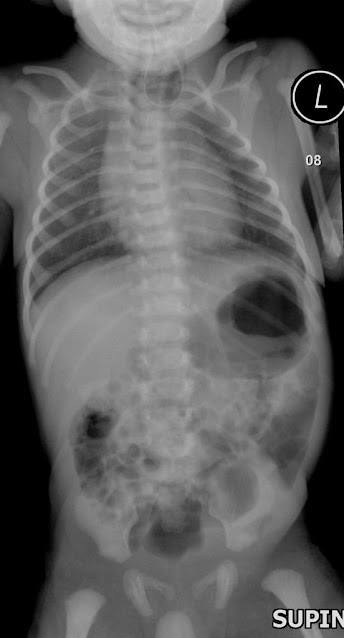Congenital tracheo-esophageal fistula is a congenital pathological communication between the trachea and esophagus.
Pathology and types:
The types of esophageal atresia/tracheo-esophageal fistula can be divided into
-Proximal atresia with distal fistula: 85%
-Isolated esophageal atresia: 8%
-lsolated fistula (H-type): 4%
-Double fistula with intervening atresia: 1%
-Proximal fistula with distal atresia: 1%
Investigations:
Plain radiograph:
-Demonstration of the nasogastric tube curled in the proximal esophagus in a child where the passage of the tube has been unsuccessful is usually sufficient for diagnosis.
-The proximal esophageal stump may be distended with air (types A and C).
-The presence of air in the stomach and bowel in the setting of esophageal atresia implies that there is a distal fistula.
-Often the lungs demonstrate areas of consolidation/atelectasis due to recurrent aspiration.


No comments:
Post a Comment